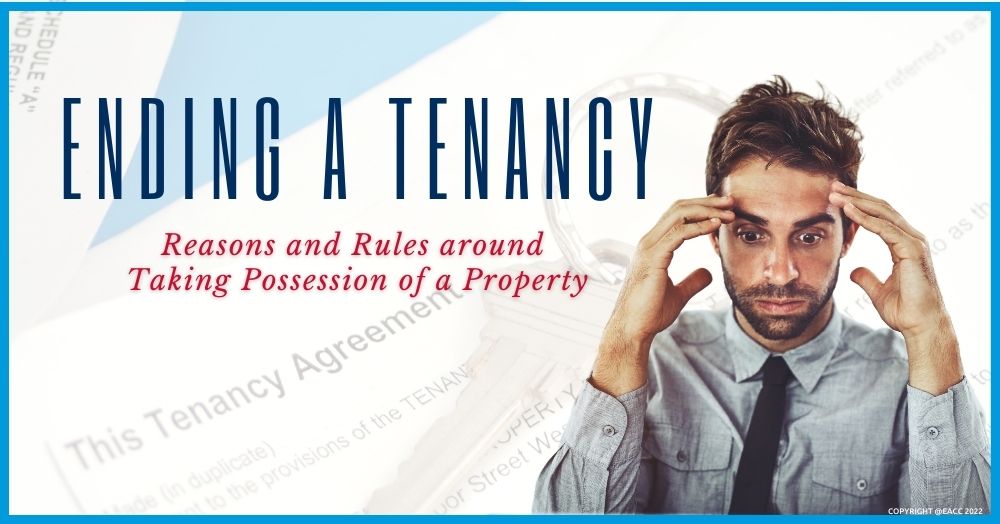Ending a Tenancy: Reasons and Rules around Taking Possession of a Property
This two-minute read looks at why landlords end tenancies and the issues and implications around taking such a step.
From toxic tenants to financial friction – there are many reasons why a landlord might want to end a tenancy.
These reasons can include:
- The tenant has breached their contract by missing rent payments, subletting, or trashing the property.
- Relations between the tenant and landlord have turned toxic.
- The property is in need of repair, and it would be easier and less disruptive if the property were empty.
- The landlord wants to live in the property.
- Financial reasons mean the landlord wishes to sell up.
Whatever the motive for wanting a tenant out, one rule applies: never act impulsively.
It’s easy to get hot under the collar if you discover your tenant is treating your property like a dump or a drug den.
And it’s understandable if your circumstances suddenly change and you want to take back possession of your property (it belongs to you, after all).
But ignoring your contractual obligations and letting your heart overrule your head could prove costly.
What you can do
Before taking any action, make sure you understand your legal position and, if in doubt, get professional advice.
The steps you take will be influenced by the type of tenancy, the length of term, and the notice period.
Your strategy will also depend on if the tenant has breached their contract (in which case you’ll need evidence) or if you have a different reason for wanting the property back.
Whatever you do, don’t blag it. If the case winds up in court, a judge won’t look kindly on a landlord who has cut corners and ignored procedure.
Have someone in your corner
Having a letting agent manage your property means you’ll not only have a great source of advice at your disposal, but they’ll also do the legwork.
What a relief to have someone else deal with head-banging, anti-social tenants or chase late rent payments.
When it’s your property, it’s difficult not to take things personally – and lose your cool.
Having a professional deal with situations in a measured and calm way means less hassle and often proves more effective.
With discussion and negotiation, it’s often possible to avoid messy court disputes and move the situation along quickly.
Get in touch with us here at Hi Residential to learn more about our property management services.





